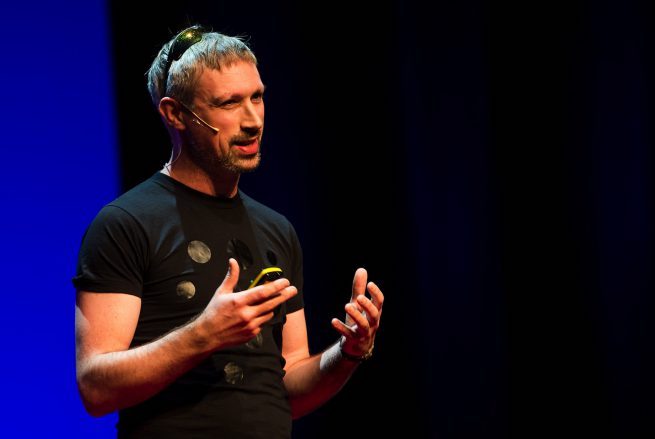Everyone nowadays is connected to the internet, where everything we do operates online. Therefore, we can undoubtedly say that our lives are all connected to this big network called the internet. But as we see with each day that passes, we are witnessing the evolution of technology and how ways of connections are evolving more and more.
We are pretty sure that by now, you must have heard about the new sensation circulating online, Web3, the innovation that brings 2022—also known as Web 3.0. this new technology is being called the new generation of the internet, which is believed to change everything in how we operate online. But to start explaining what Web3 is, we have to go back a little and understand more about the previous Webs in use.

The history of Web Triad
The history of the Web trio starts from Web1, known to be the very first stage of the World Wide Web evolution. Earlier, there were only a few content creators in Web 1.0, with a vast majority of users who are consumers of content. Personal web pages were common, consisting mainly of static pages hosted on ISP-run web servers or free web hosting services. In simpler terms, web 1 was just a collection of links and homepages where websites weren’t particularly interactive. You couldn’t do much apart from reading things and publish basic content for others to read. Also, in Web 1.0, advertisements on websites while surfing the Internet were banned.
Next came Web 2.0, which is known to be the version of the Internet that we use today. Some9 people call this the “read/write” version of the Internet, in reference to a computer code that lets you both open and edit files rather than view them. This version of the Internet allowed people not only to consume content but create their own and publish it on different social networks that include big names such as Facebook, Instagram, Twitter, etc.
We can mention Facebook innumerable times for breaching data privacy laws and their infamous hit with a $5 billion fine in 2019, the most significant penalty ever issued by the Federal Trade Commission (FTC.), but even though this concept offered a lot of excellent free services, such as connecting with people from all over the world, and not only it was also accompanied by the use of our data for marketing campaigns and advertisements from these tech social media platforms.
But now, the new sensation, Web 3.0, is thought to have changed completely how the Internet is supposed to work. Web 3 can be understood as the “read/write/own” phase of the Internet. Rather than just using free tech platforms in exchange for our data, users can participate in the governance and operation of the protocols themselves. This means people can become participants and shareholders, not just customers or products. Web 3.0 promises to make possible open, trustless, and permissionless networks while still in its infancy. Moreover, it consists of several elements that could serve as the building blocks for its success: edge computing, decentralized data networks, 3D graphics, and artificial intelligence. We are talking about a decentralized and a more democratic version of the current Internet.
Web3.0 vs Web 2.0?
If we compare the web how it is today and the change that we are waiting for in the future, the main difference is that the current web (Web 2.0) uses data and digital content in an organized way by using tags and labels that are added by users, to identify content. All web pages are linked, and data shared between websites depends on users’ content knowledge. But with Web 3.0, machines can recognize a broader range of data sets to categorize the content. This makes it easier to engage users with more helpful content.
The creator of Web 3.0, computer scientist Gavin Wood, who is also the co-founder of Ethereum and also co-founder of blockchain infrastructure company Parity Technologies, explained Web 3.0 to CNBC: “Web3 is an alternative vision of the web, where a single service provider company does not host the services that we use, but rather they’re sort of purely algorithmic things that are, in some sense, hosted by everybody. So, it’s like, it’s very peering to peer, right? … The idea is that all participants contribute a small slice of the ultimate service”.

On this note, Web 3.0 is believed to allow much more user control. Individuals can participate in the control web protocols, essentially becoming shareholders rather than users or customers (as they would currently be considered using Web 2.0). Web 3.0 will also incorporate a lot of AI-powered features into its system. Content creation could go from being solely curated by humans to AI-generated. Therefore, this emerging technology with its features can completely transform how we view and use the internet, with users having more control, new industries being born, and much more. But all this talk has raised some concerns on how Web 3 will manage privacy and safety issues that are very common today.
How will Web 3.0 change internet privacy?
When asked, Wood added that the main difference that Web 3.0 is believed to bring is that since its technology is based on Blockchain, the records will be visible to anyone. This will bring total transparency where users can see how their apps use their data. Blockchain technology lets users verify their identities, minimizing how many people can access sensitive information.
Another good thing with the implementation of Blockchain is that these processes are distributed across an extensive network, where hackers will find it harder to break into different computers on the system to attack it. We can see that the inspiring future internet is changing the privacy settings, where it’s ensuring more safety for the user. Despite this, even though Web 3.0 holds much potential, there is still a long way to go, with many more challenges ahead. For this to truly work, new structures need to be built. Although Web 3.0 is clearly in its early stages, we believe that it won’t be long before it erupts and changes the internet for good.



